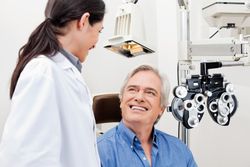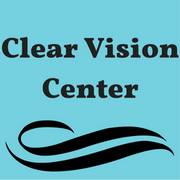
Spending time outside during the winter months can be revitalizing. If you don't take certain precautions, though, it can also cause painful conditions like snow blindness — or what eye doctors call photokeratitis. If you have certain responsibilities in the winter, such as shoveling the snow on your front steps, here's what you should know about snow blindness.
What Causes Snow Blindness?
Snow blindness is caused by excessive exposure to UV light. Both natural and artificial light can cause this condition, which is characterized by sunburn on the cornea. Snow is often responsible because of its reflective quality, but other surfaces like water and white sand can also contribute to photokeratitis. Additionally, consistent exposure to sun lamps, tanning booths, and welding equipment can cause it.
What Are the Symptoms of Snow Blindness?
 The most common symptom of snow blindness is eye pain. You may also experience a burning sensation in your eyes. Other symptoms include red eyes, blurred vision, excessive tearing, sensitivity to bright lights, small pupils, and eyelid twitching. Much like sunburned skin, though, a sunburned cornea will not manifest symptoms until after the damage has occurred. Once symptoms arise, make sure to visit an eye doctor to confirm that snow blindness is the cause.
The most common symptom of snow blindness is eye pain. You may also experience a burning sensation in your eyes. Other symptoms include red eyes, blurred vision, excessive tearing, sensitivity to bright lights, small pupils, and eyelid twitching. Much like sunburned skin, though, a sunburned cornea will not manifest symptoms until after the damage has occurred. Once symptoms arise, make sure to visit an eye doctor to confirm that snow blindness is the cause.
How Can You Prevent Snow Blindness?
While snow blindness is rarely a cause for concern, you should take steps to prevent the pain and discomfort that comes with it. The most effective way to protect the corneas from UV exposure is by wearing sunglasses (or snow goggles). Your eye doctor can recommend several brands that block UV rays. For optimal protection, wear your sunglasses year-round, including on cloudy days.
If you think you might have snow blindness, the eye doctors at Clear Vision Center in Brooklyn, NY, can help. This locally owned practice has been providing comprehensive care to patients of all ages for more than a decade. With both an optometrist and an optician on staff, they can meet your vision care needs, from exams to contact lens fittings. To schedule an eye doctor appointment, visit their website or call (718) 771-0078.
About the Business
Have a question? Ask the experts!
Send your question

